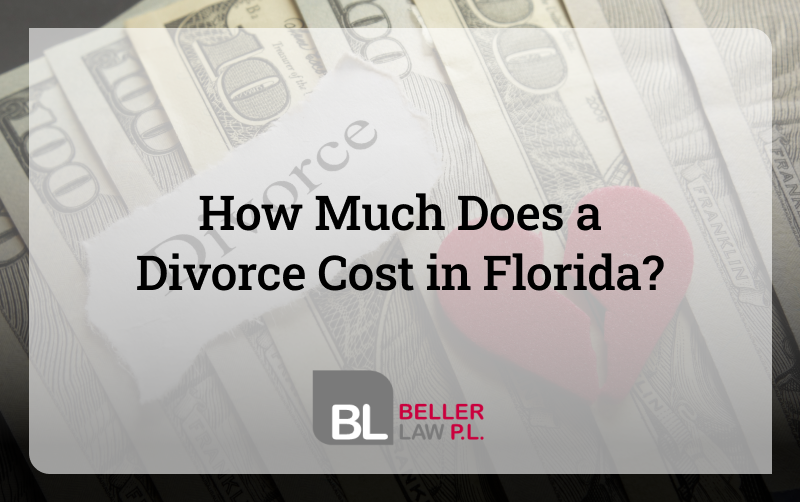
Historically, statisticians estimated that about half of all marriages end in divorce. However, recent data from the Centers for Disease Control (CDC) revealed that around 40% of marriages end in divorce. An experienced Florida lawyer can help citizens of the Sunshine State who are experiencing the economic consequences of separating from their spouse.
Types of Divorce in Florida
In Florida, divorce is formally called a “dissolution of marriage.” There are three primary types of divorce. For any type of divorce, the filing party must show that:
- The parties are married,
- At least one spouse has resided in Florida for at least six months before filing for divorce, and
- The marriage is irretrievably broken.
The types of divorce in Florida include the following.
Simplified Dissolution
As the name suggests, this is the simplest and usually the fastest way to divorce in Florida. However, courts only permit simplified dissolution under the following circumstances:
- There are no minor children from the marriage,
- The wife is not pregnant at the time of the filing,
- Both spouses file a financial affidavit,
- Both spouses agree to all issues, and
- Both spouses attend the final divorce hearing.
If you meet all these criteria, you could have a quick and relatively easy, simplified divorce.
Uncontested Divorce

Contested Divorce
This type of divorce occurs when the parties cannot or will not agree on all of the marital issues involving property, debt, or minor children. In other words, there are areas of disagreement that a judge must decide.
The type of divorce and surrounding circumstances in each case are unique; therefore, the work involved and the cost can drastically vary from case to case. A lawyer can help individuals achieve favorable results and resolve their cases in the most cost-effective and prompt way possible.
What Is the Average Cost of Divorce in Florida?
So, how much does a divorce cost in Florida? According to 2020 data from USA Today, the average cost of divorce in Florida is $13,500 without children, the 15th highest average in the nation. The average if you have children is $20,300. These numbers are of particular concern when you consider that the median household income in Florida is $55,462, the 14th lowest in the country. However, these numbers are merely averages, and various factors can impact the cost of your divorce.
Factors That Affect the Cost of a Florida Divorce
Many factors can impact the cost of divorcing in Florida. The average filing fee for a Florida divorce is around $420, with potential additional fees like paying a process server to serve your spouse with the divorce papers.
However, let’s look at some other factors that could affect the cost of a Florida divorce.
Inability or Unwillingness to Compromise
Whether or not you and your spouse can work out your disagreements could be the single largest factor in how much your divorce ends up costing. If you can compromise and work together to decide all major issues in your divorce, it will mean less work for your lawyer—and less money out of your pocket. On the other hand, if you cannot compromise, that means that you will likely have to pay for a mediation ordered by the judge and your lawyer may have to take your case to trial and let the judge make the decisions for you.
In some cases, the parties might even need to hire therapists, real estate evaluators, business evaluators, custody evaluators, or forensic accountants to help resolve issues. These parties all have a range of costs depending on their expertise and the complexity of the case.
Complicated or Substantial Assets
Couples with many assets, such as stocks, bank accounts, and multiple properties, often face increased costs. This is because the more assets you have, the more complicated it can be to divide the marital estate. Unlike many other states, Florida’s no-fault laws prohibit the court from considering fault when dividing the marital estate. For example, a judge cannot consider a party’s adultery as a factor in the division of property. However, a judge may consider the party with primary custody when making decisions about the familial residence or consider whether one party has a gambling problem and may have dissipated marital assets.
Minor Children
Issues involving minor children can be tumultuous when the parties cannot mutually agree to custody terms or child support amounts. In many cases, the parties need to pay for court-ordered counseling, evaluators, and other services to keep the parties focused on the best interests of the children. If the spouses ultimately cannot agree, the case will need to go before a judge to make final decisions about the children.
Alimony Dispute
Couples that cannot agree on spousal support, also called alimony, often end up needing a judge to decide who gets support, how long the support should last, and how much it should be.
Attorney
An attorney well-versed in Florida divorce laws and court proceedings can provide clients with a plethora of advantages. An experienced attorney knows how to assess your case, what you are legally entitled to, and how to help bring about an agreement to save you both time and money. They know how to spot any tricks your spouse’s attorney might use to gain an unfair advantage, and they can advise you on the best strategy for your circumstances. And if your case needs to go to trial, your attorney knows how to present your case in the best possible light. In addition, an attorney can help clients with tangential issues related to divorces, such as tax advice, restoration of a former name, and appeals.
Are You Contemplating a Florida Divorce?
Suppose you believe that your spouse is considering a divorce or you plan to file in the near future. In that case, you need to contact an experienced Florida divorce lawyer to ensure your interests are protected. Even if you believe that your divorce will be amicable, that doesn’t necessarily mean that it will be. At Beller Law, PL, our Florida family lawyer has over 25 years of hands-on experience helping clients of all backgrounds through the complex—and often stressful—divorce process. To learn more and to schedule a free consultation, call us at 904-288-4414. You can also reach us through our online form, and our firm will contact you soon.
